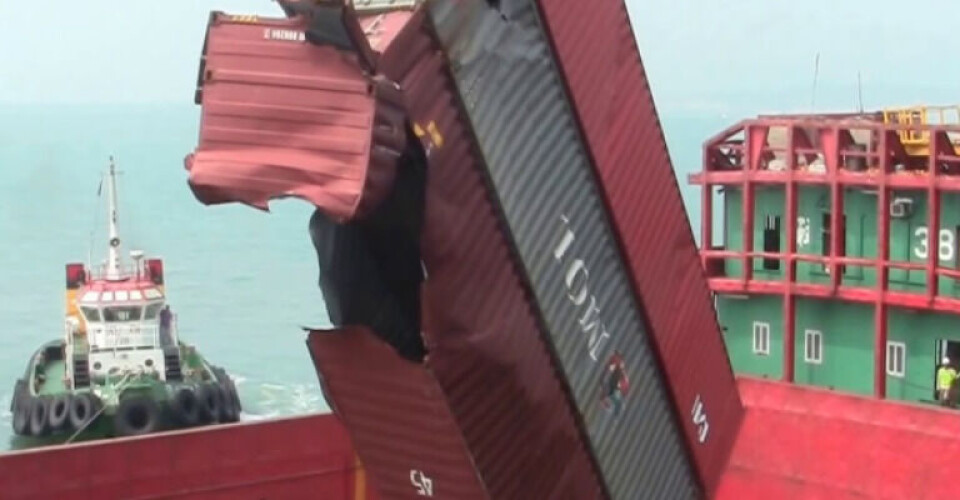NGO: Container stack collapse could result in PTSD in seafarers

The NGO that jointly developed the Safebridge CrewCare application argues that container stack collapses could cause post-traumatic stress disorder in seafarers
By Michael McGrady, Maritime Direct Americas & Pacific Correspondent
LONDON — The volunteer group Container Shipping Supporting Seafarers (CSSS) said that the organization believes seafarers can be struck with post-traumatic stress disorder (PTSD) if they witness container stack collapse.
“To be working onboard a large vessel during a major stow collapse must be an extremely stressful experience,” said Philip Eastell, the founder of CSSS, in a press release sent to Maritime Direct by email. “The sheer movement of so many containers as the stow collapses and containers land on deck or fall overboard, as well as all the noise must be very frightening and traumatic indeed.”
“This is in addition to the potential exposure to serious injury and fatality as a result of collapsing containers, but also from their contents. In the case of hazardous cargoes leaking, ship and crew are placed in even more danger,” he adds.
According to CSSS, the organizational concern follows a series of high-profile incidents in a span of the last three months.
Eastell added that the loss of such a large number of containers and the impacts of huge change in weight distribution could lead to ship stability issues. He also said that ship safety and survival equipment policies should accommodate container collapse risks to mitigate further the loss of life, assets, and vessel stability.
CSSS says that a master mariner who is a member of the consortium spoke on the condition of anonymity to describe the culture of fear surrounding container collapse.
“Everyone from crew to the highest authority within the industry needs to stop playing the blame game,” the mariner said, recalling an incident in which his vessel departed from an Indian port on a late timetable. “The agent was furious blaming the crew for the delay, but this was because we found a twist-lock incorrectly seated. Still, the agent hounded the crew, saying they were personally at risk of losing pilot booking fee discounts and causing huge financial losses for our company.”
“The safety of the ship, cargo, and the crew is the top priority. Crews are not trained to overlook mistakes, and ships crews work diligently without complaint. We don’t blame stevedores or the crane operators for not fixing lock properly,” adds the mariner.
“This blame culture needs to stop.”
While synonymous with the graphic scenes soldiers see in the settings of war, PTSD can occur in anyone who witnesses an extremely traumatic event. It isn’t restricted to military members or first responders. Virtually anyone can get PTSD.
The Mayo Clinic says that PTSD “is a mental health condition that’s triggered by a terrifying event — either experiencing it or witnessing it.”
Symptoms of PTSD might include flashbacks, nightmares, severe anxiety, and uncontrollable thoughts related to the event. Often, people who go through traumatic events may have difficulty adjusting and coping.
If symptoms persist and the trauma continues to the point that it impacts day-to-day functions, that individual certainly has PTSD.










